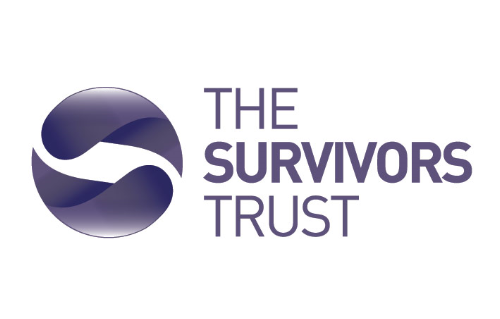TOUCHY
Five short films, five unique stories, five reasons to watch.
Touchy is a project made by 20 Stories High in collaboration with six Liverpool-based artists. From 13th May 2021, we’ll release each film weekly, and they will be available to watch on YouTube and Instagram for a while after. Starting with Jemell’s story and moving through the weeks to Max’s story at the end. Self-care toolkits are available for all five films (or as one combined toolkit).
ABOUT TOUCHY
A mash up of theatre and music video – interweaving beats, drama, poetry, animation, visuals and original music. We follow the journey of six characters as they navigate their way through the tactile highs and lows of young adulthood.
WHY THIS TOOLKIT?
This toolkit has been designed to offer support to anyone engaging with the film, especially anyone who might be impacted by its content. We hope this toolkit provides you with specialist resources and tools from the professionals that may help.


About Ella & Ste’s Story
Ella and Ste’s Story investigates consent, with a story that explores the conflicting recollections of an intimate moment many moons ago.
Content Overview
Ella & Ste’s story explores sex, relationships and questions around sexual consent and assault. There is a detailed breakdown of what story they tell at the end of this pack, please read it ahead of watching if you would like further information.
Suitable for ages 13 plus.
There is a detailed breakdown of what story Jazz tells at the end of this page, please read it ahead of watching if you’d like some further information.


Go at your own pace:
If you don’t want to watch this all at once, maybe consider watching the film a bit at a time. Ella and Ste’s story is told through a spoken script is just under 14 minutes long in total. It’ll be available on YouTube and Instagram for the next few years at least. Do what feels right for you.
Watch with someone:
Watching with someone who knows you and any connections you may have to the theme of this film may help when it comes to recognising if you need to switch it off, or if you need support. Or if you can’t watch with someone, maybe message someone ahead of watching, and let them know you might call them if you need support.
Read a summary of the film:
If you would like to know the content before you watch, so that there is nothing unexpected, you will find a full breakdown of the piece at the bottom of this document.
Remember it is your choice:
Remember it is your choice to watch this film – you are in the driving seat. There should never be any pressure to do otherwise. You are in control, even if you might not feel it. If you are feeling overwhelmed at any point, turn the film off and try some grounding techniques.
Remember your breath:
If you become triggered, breathing is a great way to bring yourself back into a state of calm, lower your heart rate and create space in your brain to start thinking things through at an easier pace. Try breathing in for four seconds, holding your breath for four seconds, exhaling for four seconds and holding again. Repeat this for as long as you need until your breath feels in control again. Lots of mobiles and smart watches offer apps which can help you with this.
Get some fresh air:
Going for a walk or even just standing outdoors can help.
Get help:
If you notice that you have become overwhelmed – and the techniques suggested here or techniques that usually bring you calm have not this time – then you recognise that and consider getting professional support. See the bottom of this document for helplines and organisations who can help.
Advice taken from The Survivor’s Trust blog: Taking Care of yourself & I May Destroy You – find more advice and tips here: https://bit.ly/3v6rw2H – this article was created by The Survivor’s Trust in order to help viewers in making the choice to watch the TV series I May Destroy You. Although our Touchy films have differing themes, the ideas and tips are relevant for lots of shows and films that may be triggering.


- Brook – 0151 207 4000 – Brook Liverpool operates a free and confidential service for people aged 24 and under, offering sexual health screening, contraception including implants and IUDs, emergency contraception, pregnancy testing, free condoms and advice.
- RASA Merseyside – 0151 666 1392 (Helpline) – A professional counselling and support service that exists solely to improve the mental and physical well-being of individuals impacted by sexual violence at any point in their lives.
- The Survivor’s Trust – 08088 010818 – The Survivors Trust has 120 member organisations based across the UK & Ireland which provide specialist support for women, men and children who have survived rape, sexual violence or childhood sexual abuse.
- Childline – 0800 1111 – Childline supports anyone under 19 in the UK with any issue that they are going through. They can talk about anything – whether it’s something big or small, our trained counsellors are here to listen and support.
- Victim Support – 0808 16 89 111 – Victim Support supports children and young people who have been affected by crime. They also support parents and professionals who work with children and young people.
- CALM – 0800 58 58 58 – Campaign Against Living Miserably (CALM) is leading a movement to support mental wellbeing and health.
Not sure where to turn?
The Mix offers a wide range of support for young people under the age of 25, with 1-2-1 chat and messenger available on their website. – 0808 808 4994
Useful apps:


Synopsis of the Film: Ella and Ste’s story
Ella and Ste’s story is told through two conflicting recollections of an intimate moment many moons ago. It investigates consent, and what mutual desire does – and does not – feel like.
The piece starts with Ste and Ella looking directly into the camera – both of their voices are heard saying ‘shit’. Ella starts talking about how something had happened, that she had not wanted. There is cello music playing in the background. The film cuts to Ste sitting in the courtyard of a bar. Ella’s face is superimposed over this scene, and she is looking directly into the camera.
We realise that Ste has just seen Ella for the first time in 10 years in a bar he is at with friends. Ella is in a bed on the night they last saw each other, 10 years ago.
Ste is alone and talks about how he would greet Ella if he bumped into her – how he imagined it would be when they next saw each other. He talks about how he would ask Ella why she has ‘ghosted’ him for the past ten years, and why she never got in touch. The image of Ste slowly fades, and Ella is looking directly into the camera. He talks about how it was difficult for him to understand that night, why she left and how it has impacted him. He feels like he is owed an explanation.
There is a loud white noise, the screen flashes black and white, and Ella is lying in bed. The shot only shows her shoulders and head, lay on a light pink pillow, with a faded rainbow. She looks directly into the camera and says: ‘I am trying to piece together what happened’. The film returns to Ste sat outside the bar, he imagines that if he saw Ella, she would apologise. The screen flashes and returns to Ella in bed. She says that she is sober now and angry with herself.
The piece returns to Ste, he imagines that they would reconcile, hug and maybe even fall back in love. Ella starts to talk through what she remembers from the evening. They are staying in Maya’s sister’s room, covered in unicorns and rainbows. They start kissing and Ella talks about how her and Ste share the same values – they had discussed waiting to have sex – Ste is a Christian and didn’t want to have sex before marriage and she wanted to wait.
The scene returns to Ste in the bar. He recites a conversation that he had been having with his friend who talks disrespectfully about women. Then, Ste sees Ella. She is standing in the bar. The screen flashes to Ella in bed. She talks about how her and Ste are undressing each other and how it feels comfortable, especially because of the alcohol. Ella talks about how they touch each other, as they would normally, but then Ste climbs on top of her. They had not agreed, but he penetrates her. As they look into each other’s eyes, Ella does not know what he is thinking. She recalls that ‘they might as well carry on’ as they had done it now. She feels like her head is full of Prosecco and mess.
Their voices start cutting over each other – Ella thinks Ste can see that she is uncomfortable. Ste talks about how he asked if Ella was okay – because she doesn’t look okay. Ste thinks this is a deep, intimate moment. Now, years later, he sees that maybe it is not what she wanted. Ella questions why she isn’t telling Ste to stop – and why Ste didn’t ask her in the first place. Returning to present day, Ste talks about how he can see the same look in Ella’s eyes, stood outside the bar, that he saw on that night.
The film returns to Ella lay in bed, she doesn’t feel comfortable with Ste snuggling into her and being soppy. Ella talks about how she feels angry with herself, and that she has let herself down. Why did she let him? She wants to get out. Musical symbols build in the background. Ste is sat outside the bar. He realises what happened on that night and talks about how he should have asked Ella for consent.
The piece moves to Ella stood in front of a mirror in the bathroom, shortly after the party and the moment in bed with Ste. She is taking her earrings out and talking about how that night made her feel. She doesn’t know exactly what it was, but she does know that it didn’t feel comfortable. She didn’t know what to tell him, but she knew that they were over. One day she will tell him.
The piece moves to Ella stood in the courtyard of the bar, where Ste is, in present day. Ste talks about how her expression changes, it focuses. The piece finishes with Ella looking directly into the camera and asking, ‘Ste, can I have a word?’. The background music has changed, it is light and steady, the camera fades.




Further Information
What is consent?
Consent means agreeing to do something. The word can be used in lots of different situations. When it comes to sex specifically, consent means to agree to have sex or engage in sexual activity (including kissing, sexual touching, oral, anal and vaginal sex with a penis or with any other type of object). It is important that everyone involved in sexual activity is consenting at all times. The law defines consent as when a person ‘agrees by choice and has the capacity to make that choice’. This means agreeing to sexual activity with full understanding of what is being agreed to and no pressure to say ‘yes’. This is also known as ‘enthusiastic consent’ which means actively (not passively) providing consent because it is something the person genuinely wants to do. There are situations where someone might not be able to give consent because they don’t have the choice or capacity, for example if the person is:
- Too drunk or high
- Asleep or unconscious
- Pressured, manipulated, threatened or coerced into sexual activity
- Under the age of consent (in the UK, the legal age of consent is 16)
- Isn’t able to withdraw consent (if they can’t say no, then they can’t say yes)
Why didn’t Ste ask for consent?
Talking about sex can be difficult, and feelings of awkwardness can put people off having conversations. The more practice that couples have talking about sex, desire, relationships, pleasure and bodies, the easier it becomes. These conversations don’t have to be awkward or formal, but no matter how bumpy the first one is, presuming what someone does or does not want can lead to confusion, anger, embarrassment, and pain for both partners. This means it is important to practice ways of asking others for consent and having an ongoing conversation. Practicing consent means paying attention to your partner’s actions, words and sounds throughout each sexual encounter. This can mean taking a moment to:
- Ask your partner if sexual activity is what they want and if it feels good
- Listen to what they say
- Read your partner’s body language
Within consent, it is also important to remember that if someone has consented to one thing, it doesn’t mean that they have consented to something else. Consent can always be withdrawn at any time, and neither person needs to explain why they have withdrawn consent if they don’t want to.
Why was Ella uncomfortable with what happened?
In the law consent looks very clear, but in reality, it can ambiguous and confusing. Sometimes ‘no’ is very hard to say, but the absence of a ‘no’ does not mean ‘yes’. Often, the body and mind send us signals and messages in sexual situations (e.g., an increased heart rate, erect penis or feelings of desire or confusion and anger). Reading and acting on these signals is key to understanding what is wanted or not wanted. Sometimes, it is difficult to make sense of how you feel, and this is completely normal. If you sense unease, insecurity, or the desire to stop in either yourself or your partner, that means one of you are not comfortable with what is happening. Examples of physical signals for consent might look/feel like your partner:
- Looking at you, smiling and nodding
- Being relaxed and happy
- Being enthusiastic and responsive
- Kissing you back and touching you
- Responding to you with their body
Examples of physical signals for non-consent might look/feel like:
- No eye contact
- Crying
- Frozen or frightened facial expression
- Shaking or flinching
- Incoherent talking
- Sleeping
- Confusion
- Rigid or tense body
- Silence or stillness
- Resistance
If your partner is giving these signs, always stop any sexual activity, read your partner’s body language and if it feels right, have a conversation about how your partner is feeling.
How can I talk about consent?
Everyone needs to know about consent so they can keep themselves and other people safe. Consent in a relationship involves checking in with yourself and thinking about your feelings, emotions and body, and also checking in with your partner.
These are examples of how to strengthen your own conversations around consent. If you are worried about a friend, relative or someone else, it can be difficult to approach the subject or know exactly what is happening, but you you can:
- Tell them you’re worried and that you are there for them when they’re ready to talk
- Get advice online about helping a friend (see: ChildLine)
- Look out for each other when you’re out
Info taken from Brook and Childline


